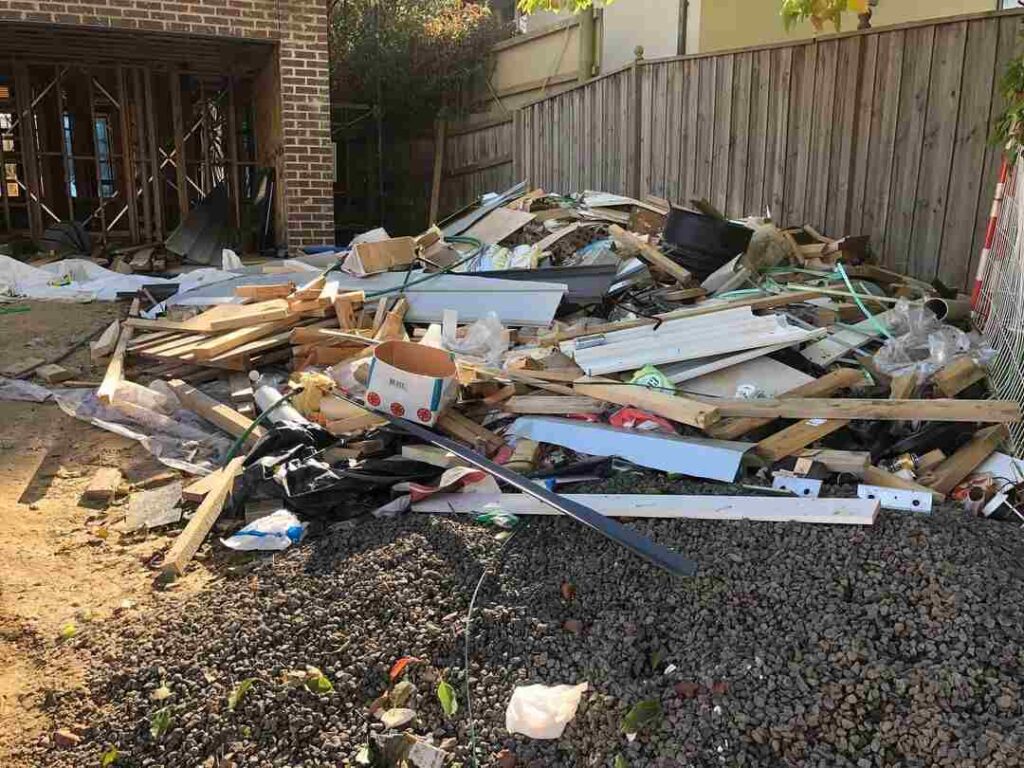Renovations can be an exciting and straightforward process for your home, but they also generate a significant amount of waste. For this reason, proper rubbish removal is highly important to ensure that your renovation runs smoothly, remains eco-friendly, and minimises the impact on your neighbourhood.
Here’s a 10 step guide to considerate rubbish removal during a renovation:
Plan Ahead
Before starting your renovation, create a waste management plan beforehand. Assess the types of materials you’ll be disposing of, such as wood, drywall, metal, or tiles. Different materials may require different disposal methods. Planning ahead ensures you have the right resources and services in place, reducing the risk of unexpected issues.
Choose Eco-Friendly Disposal Methods
Opt for recycling and reuse whenever possible. Many materials from renovations can be repurposed or recycled:
- Wood: Reuse or donate to organisations like Habitat for Humanity.
- Metal: Scrap metal can be recycled at local centres.
- Concrete and Brick: These can often be crushed and used as fill material.
Research local recycling centres and facilities that accept renovation waste. Many areas have specialised programs for the recycling of construction and demolition debris.
Get a Professional Rubbish Removal Service
Make sure to engage a professional rubbish removal service that prioritises environmental responsibility. In London, consider Rainbow Rubbish Removals, which is known for its commitment to eco-friendly practices. They offer:
- Eco-friendly disposal: Use green disposal methods to minimise environmental impact.
- Recycling: Sort and recycle materials effectively to reduce landfill use.
- Compliance: Adhere to local regulations and provide transparent waste management solutions.
Choosing a reputable service ensures that your waste is handled responsibly, reducing your environmental footprint.
Minimise Waste During Renovation
During the renovation, follow these suggestions to reduce waste:
- Accurate Measurements: It’s crucial to take precise measurements to avoid unnecessary excess materials. This way, you can effectively reduce the amount of waste generated during the renovation.
- Buy Only What You Need: When purchasing materials for the renovation, only accept the exact amount needed for the job. This will help prevent overstocking and reduce the likelihood of excess materials being discarded as waste.
- Reuse Materials: Consider recovering and reusing materials from existing fixtures and fittings whenever possible. Old items can often be refurbished or repurposed for renovation, effectively reducing the need for new materials and minimising waste generation.
Implementing these strategies leads to a more efficient renovation process and supports a cleaner, more eco-friendly approach to home improvements.
Separate Your Waste
It’s important to separate your waste into specific categories to help with efficient recycling and disposal. The categories include:
Recyclables: These include materials such as wood, metal, ceramics, glass, paper, and plastic. These items can be recycled and reused.
Non-Recyclables: These are contaminated materials or items that cannot be recycled, like soiled paper or plastic wrap.
Hazardous Waste: This category consists of paints, solvents, batteries, and other chemicals that require special handling and disposal methods.
Properly sorting these different types of waste ensures they are managed correctly, promoting environmental sustainability and responsible waste management.
Communicate with Neighbours
Keep your neighbours informed about the renovation and potential disruptions. Clear communication helps prevent complaints and allows you to address any concerns they might have about noise, dust, or rubbish. They way you can avoid any dispute from happening and renovation will go smooth.
Maintain Cleanliness
Keep your work area tidy. Regularly remove and dispose of waste to avoid clutter and reduce potential hazards. A clean workspace ensures safety and reflects your commitment to considerate rubbish removal.
Follow Local Regulations
Adhere to local waste disposal regulations and guidelines. Different regions have specific rules regarding the disposal of renovation waste. Ensure you are aware of these regulations to avoid fines and penalties.
Consider Donation
Before discarding items, consider if they can be donated. Furniture, appliances, and building materials that are still in good condition can often find new homes through charitable organisations.
Review Your Impact
After the renovation, review how effectively your waste management strategies worked. Evaluate what went well and what could be improved for future projects. Continuous improvement helps in managing waste more effectively and promoting sustainable practices.
Take Action for a Cleaner Renovation
Considerate rubbish removal during a renovation supports environmental sustainability and contributes to a smoother and more organised renovation process. Planning ahead, choosing eco-friendly methods, and maintaining clear communication will help minimise your renovation’s impact on both the environment and your community.
For a successful renovation, integrate these practices into your project to make a positive difference and create a cleaner, greener home. For those seeking professional assistance don’t forget to explore rubbish removal in London to find services that align with your sustainability goals.

